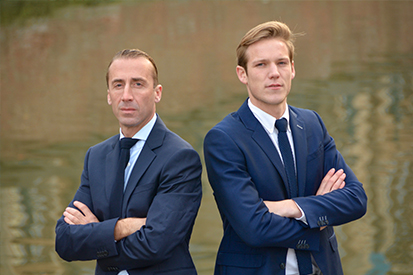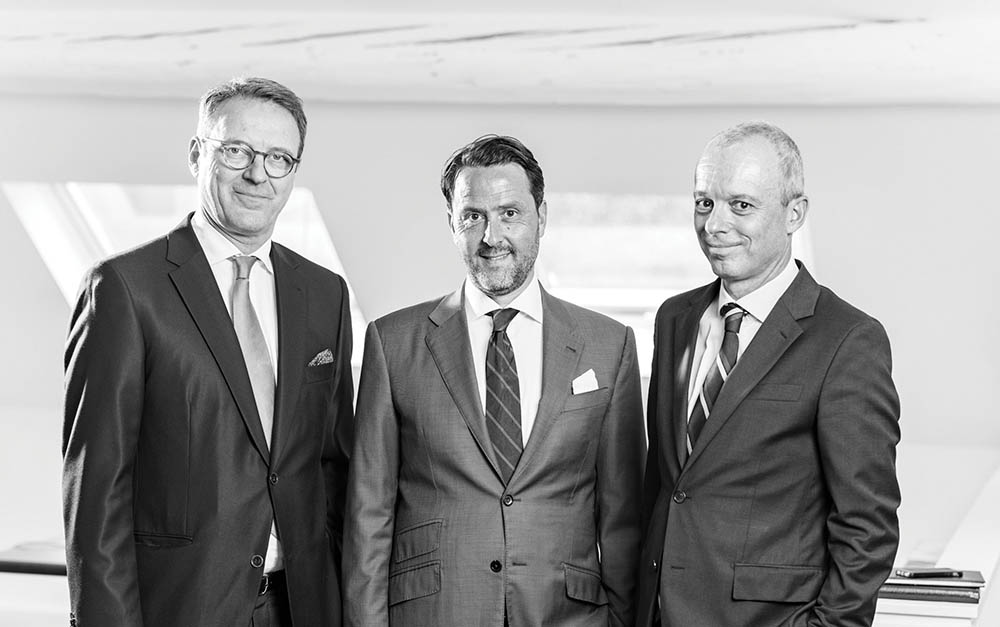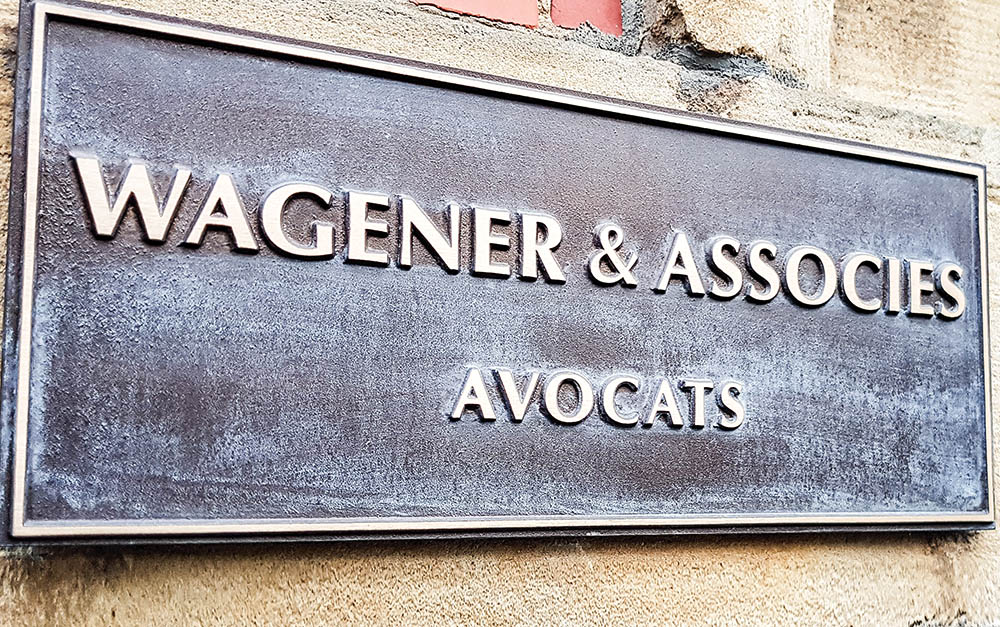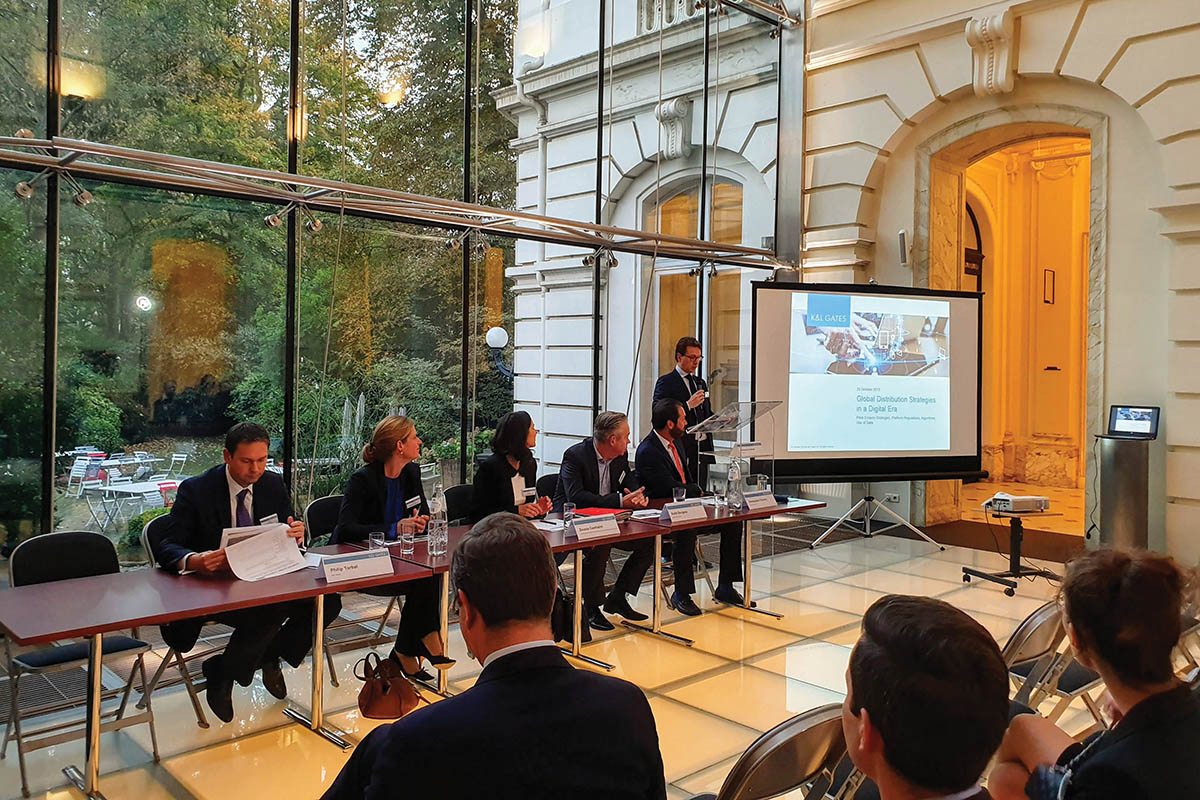Gillis Advocatenkantoor

Behind the scenes of the criminal court
TEXT: ARNE ADRIAENSSENS | PHOTO © THOMAS GILLIS
Togas, pieces of evidence and a hammer: the theatre of judges, attorneys and criminals never stops tickling people’s curiosity, hence the many books, films and television shows that have been made about it. After several years in the industry, criminal attorney Thomas Gillis considers the courtroom as his natural habitat. We have called him to the stand to testify about the ins and outs of the criminal law.
In his younger years, he was a prodigy on the football field: today Thomas Gillis is a well-respected criminal lawyer in Flanders. “There are quite a few similarities between top sports and law,” Gillis explains. “In both sectors, you have to fight for what you believe in and keep working to the best of your abilities. No matter how talented or experienced you are: the moment you stop giving it your all, you lose. That pressure gets my blood pumping and pushes me to keep improving.”
As a criminal defender, even the smallest error can cost your client several years of freedom. Yet, that does not seem to scare Gillis. “You must always believe in the positive outcome of a case and be motivated to help your client the best way possible. That is the basic principle of advocacy: helping people. If you’re brooding too much about all the ways the case could go south, you will lose your confidence, forfeiting all your chances of winning. A surgeon can’t be afraid to cut either, no matter how delicate the surgery is.”
No sweet-talker
Of course, advocacy is no exact science. Each attorney must develop his own personal style according to what he believes to be an effective and moral way to practice law. Gillis’ weapon of choice is eloquence in court. “My mentor, the late Piet Van Eeckhaut, was an inimitable master of the spoken word. He has taught me how a lawyer is not a writer but a speaker. Belgian criminal trials are held in front of professional judges who may or may not be accompanied by a jury. In both cases, the spoken word is a vital tool for a criminal lawyer. I, personally, tend to call a spade a spade and don’t sugar-coat the facts while addressing the judge or the jury. Otherwise, they, as well as your opponents, see right through it, jeopardising your credibility.”
Therefore, a lawyer’s strongest weapons are the facts as they are presented. Based on them, they establish their pleadings and strategy. “An attorney is no sweet-talker. We don’t change the facts or question the evidence. We just put all those elements in their right context, letting the judge and jury look at the case through the eyes of our clients.”
That does not mean a lawyer has to sit in his office, waiting for the results of the investigation to come in the post. More and more, attorneys proactively ask the examining magistrate for an extra investigation, assuming this will expose new information which will benefit their client’s case. “This technique is far from new,” Gillis frames this tendency. “In Anglo-Saxon legal procedures, lawyers have been doing it for a long time already. I am happy that we, in continental Europe, have started to follow this example. If an investigator neglects certain aspects of a case or doesn’t dig deep enough to uncover the truth, it is our duty towards our clients to ask for additional inquiries. This allows us to defend them even better but also guards the thoroughness of the Belgian judicial system, resulting in fairer trials.”
18 murder trials
All this experience and knowledge, he now passes on to the next generation. As now is the case with his associate Dominique De Waele. His firm, Gillis Advocatenkantoor, has always chosen to work with young, promising lawyers. “Collaborating with recently graduated attorneys is beneficial for both parties. They get the chance to explore the business and can quickly grow in their abilities. We, on the other hand, get inspired by their youthful enthusiasm which keeps our firm relevant.”
This cross-pollination of ideas makes them an interesting party for defending both smaller and bigger cases. Having said that, Gillis cannot hide his passion for sinking his teeth into mammoth, high-profile cases. “In an ideal world, we would work on just five big cases at a time. That would give us the opportunity to study the cases down to the last details. I love working on one case for 15 hours a day, for two weeks straight. Knowing that you understand a very complex case better than anyone else, fills me with satisfaction.”
Over the years, Gillis has been able to showcase his thoroughness in 18 murder trials, with two more coming up in the next few months. In high profile cases, media attention is becoming more and more of a burden. “Experience teaches you how to collaborate with the press. We, lawyers, have very different objectives than the media has. We want to defend our clients’ interests while they want to tell an interesting story. Preferably one that sells. That doesn’t mean you can’t talk with them, of course. You just need to be awake when you do.” In comparison to how the paparazzi operate on the other side of the channel, the media circus in Belgian remains rather mellow. “Even in mediatised processes, the press usually respects the ethical boundaries.”
Sports law
Beside their main area of expertise, criminal law, Gillis Advocatenkantoor recently started exploring a second battleground: sports law. “Most members of our team have a soft spot for sports. We, therefore, know the ins and outs of the sector very well and saw how mismanagement was tainting beautiful disciplines like football and cycling. This triggered us to immerse ourselves in the disciplines of sports law and contract law, offering a trustworthy alternative for the many obscure sports agents.”
In October this year, they were proven right when the Belgian football world became the centre stage of a major corruption scandal. Some of the foremost sports agents got arrested, taking many trainers, referees and club owners with them. “This was bound to happen,” Gillis says. “Everybody knew there was corruption in the sector, we just weren’t aware of the scale of it.” By allowing lawyers to represent the players, Gillis believes malpractices like these can be avoided in the future. “Attorneys are controlled by a deontological council and have vowed to operate, respecting the Belgian law. Our main priority is the wellbeing of the players, not the thickness of our own wallets.”
Subscribe to Our Newsletter
Receive our monthly newsletter by email




